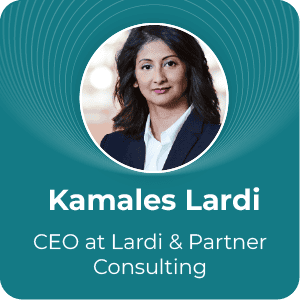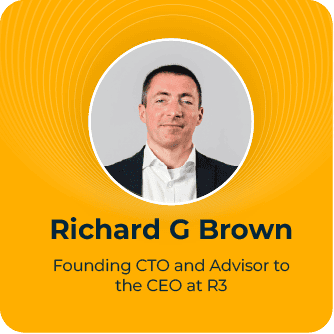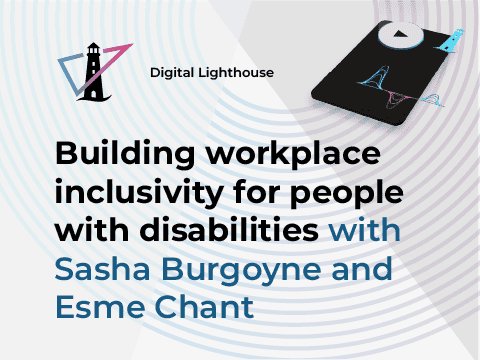“a senior leader is only ever going to have visibility into perhaps 4% of all the available data in the business, because they’re dealing with a really broad span of control. The question then is, do they have access to the right 4%? And how do you ensure that that’s the case?” – Thomas Harris, MasterCard
In this episode of “The Digital Lighthouse,” Zoe Cunningham welcomes Thomas Harris from MasterCard, delving into the transformative currents of digital innovation.
Thomas shares the strategic intricacies of MasterCard’s journey, and the broader impact on global markets, in a conversation that lights the way through the complex landscape of digital transformation, offering invaluable insights on navigating change with agility and foresight.
Listen to the podcast on this page, or wherever you get your podcasts, and read the transcript below.
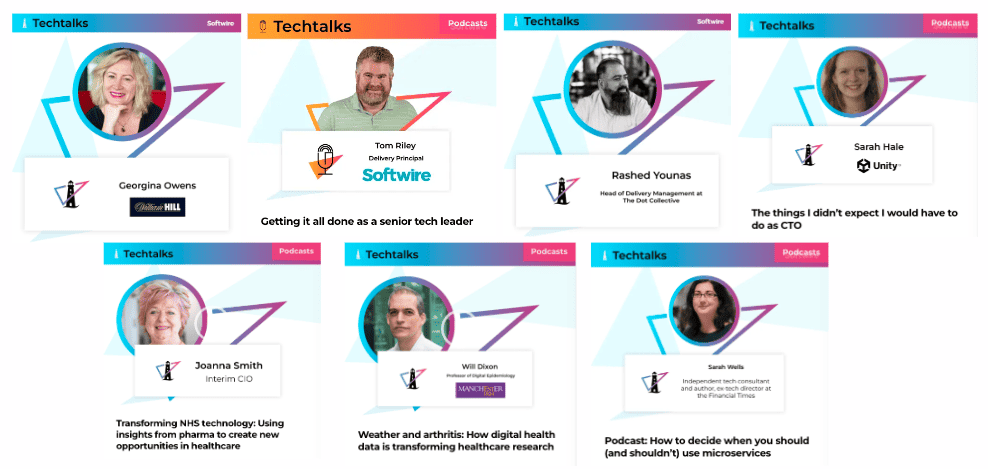
Digital Lighthouse is our industry expert mini-series on Softwire Techtalks; bringing you industry insights, opinions and news impacting the tech industry, from the people working within it.
Listen to every Digital Lighthouse episode on SoundCloud
Transcript:
ZOE CUNNINGHAM: Hello, and welcome to the digital lighthouse. I’m Zoe Cunningham.
On the digital lighthouse, we get inspiration from tech leaders to help us to shine a light through turbulent times. We believe that if you have a lighthouse, you can harness the power of the storm.
Today, I’m super excited to welcome Tom Harris, who is a Senior Vice President of digital business transformation at MasterCard.
Hello, Tom, and welcome to the digital lighthouse.
THOMAS HARRIS: Hi, Zoe, how are you?
Zoe: So let’s have a chat about digital transformation. It’s such a broad topic that it becomes very hard to define. And you took quite a unique approach to this at MasterCard.
Thomas: Yes, so my background is as a product manager. So putting my product manager hat on, we looked at the jobs to be done, the areas that we wanted to focus on and did some discovery work, both within our own organisation, but also wanted to augment that with an outside perspective. So we completed a study on digital transformation to understand what’s going on in the world outside our window. To understand what’s working, what isn’t working, and how we could learn from other’s experiences,
Zoe: Essentially, we took a very broad approach, because I think everyone with starts with looking at their own processes. But obviously, it’s great and important and what we need to do to improve. But obviously, if we had all the answers ourselves already, we wouldn’t need to change things, right?
Thomas: That’s right. I mean, every digital transformation is unique because every organisation is unique. We certainly have visibility into MasterCard, and how we operate and our aspirations for where we want to be, but also recognise that there are a lot of learnings to be gathered from outside the organisation. So we spent some time to go out to the market, understand what companies are doing in digital transformation in the United States, Australia, United Kingdom and Canada.
We looked across industry verticals, we looked across seniority levels in the organisation trying to uncover those nuggets of information that could help us move our transformation forward.
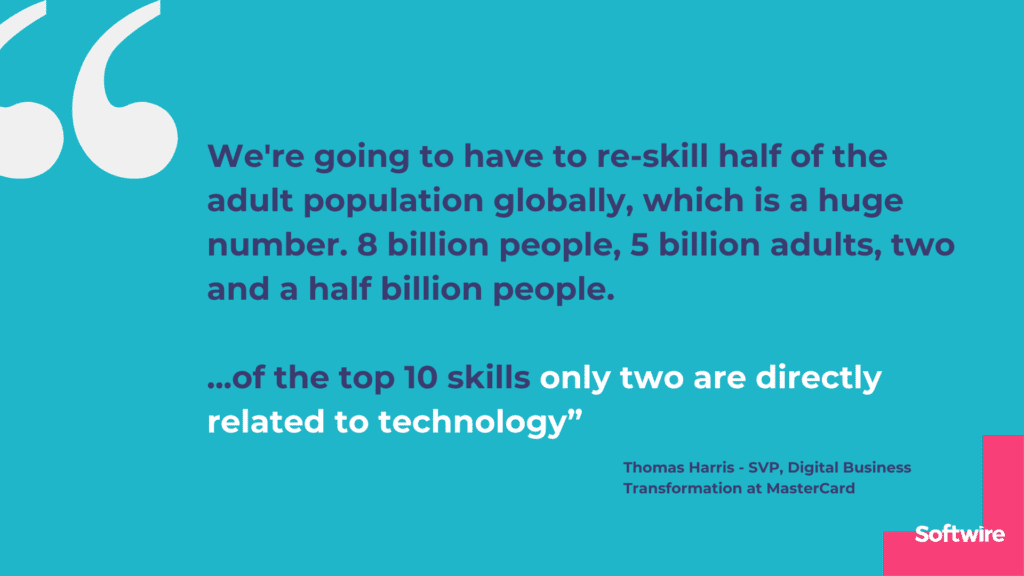
Zoe: That sounds fantastically well thought through and kind of defined, how did you decide what the scope could be?
Thomas: We deliberately kept the scope quite broad, because as has been said, you don’t know what you don’t know. So we had a very open mind as to what we might discover. So for that reason, we wanted a spread of markets.
We’re in North America headquartered organisation, so the US made sense for us, we have significant populations of product managers in the UK, as well. So that made sense and also wanted to round out looking at a market in Asia Pacific as well, just to stress test us what we’re seeing in the UK in the US typical, or do we see other trends in other markets?
Zoe: Hmm, I was gonna say it’s like a control, but it’s not quite like a control. But it’s that kind of thing, isn’t it? Identifying I guess, not just what’s happening, but starting to see why it’s happening as well. And how widely applicable is?
Thomas: That’s right. And we uncovered some really interesting findings. As a result, from keeping that open mind. I think that the one that really hits home to me is, I think it was 77% of all organisations are currently going through some form of digital business transformation with another 50%, having completed one within the last two or three years.
So that suggests that far from being unique or unusual. digital business transformation really is now on as business as usual. We’re in this constant cycle of perpetual change, which certainly we feel in MasterCard, as we continue to evolve our organisation to deliver those customer centric products with real quality that drive usage at scale.
Zoe: And I suppose some of those were the same organisation, right? There were some organisations that had just finished a digital transformation, and then all of a sudden, you’ve got to start on the next one.
Thomas: That’s right. I mean, changes, changes, the only constant as was once said, but I think if you look at the world in which we live in, driven by technology, whether that’s Moore’s law, or other indicators in the marketplace, we know that change is actually accelerating.
There was a fascinating study from the World Economic Forum that said that over the next five years, we’re going to have to reskill half of the adult population globally, which is a huge number. 8 billion people, 5 billion adults, two and a half billion people.
What was interesting, when you dig into that study, you look at the skills that people are going to need out of the top 10 skills only two are directly related to technology, in terms of writing software, managing systems, the remainder, the other eight are all about how people interact with technology into terms of how they problem solve, how they collaborate, team building.
These are very important skills, particularly when you think about new technologies or nascent technologies like aI that’s getting a lot of press, it’s very present right now. So. It’s not the technology itself. It’s the interaction between the technology and people, that’s going to make the difference for organisations.
Zoe: Yes, that’s such an interesting point. And I really wanted to kind of dig further into that. But let’s just first take a step back and look at the study as a whole, you must have had some expectations going into it from your own experiences. So what were you kind of expected from the study? And then I’d love to know whether the results match that whether you were surprised or maybe not?
Thomas: Yeah, I think the first thing is, we know change is hard. There’s a lot of inside work beyond the study that we conducted, that tells us that about three quarters of change efforts don’t achieve their objectives. And there are a whole host of reasons for that. And what we were able to do in this study was to surface some of those reasons, which largely relate to the time and resources required for change not being embedded into the organisation.
And that itself is really a function of organisations not taking a view of their whole what we call culture stack. So typically, change tends to be a little bit on the surface, people look at how can I implement or deploy some new frameworks, some new tools? How can I make collaboration more efficient and effective that way? And that’s great. And that’s really important.
But if you haven’t gone deeper into the culture stack to say, How am I structured? What are the roles and responsibilities of my organisation? How are the incentives and objectives aligned across the organisation, then it’s very difficult for you to implement change on top of that. So I think one of the items that really came out in this study was the need to align across objectives and incentives in parallel to adopting new frameworks and tools.
Zoe: That’s really interesting, because what you’re talking about there is the need to think about these large digital transformations in a holistic way. We all have our own responsibilities, don’t we within an organisation and we all have specific things we’re trying to achieve and metrics we’re trying to improve, and teams, we’re trying to get to work in better ways.
And actually, you’re kind of talking about the need for this whole organisational support to be there. And I think that’s a really interesting point. Looking back to the conversation we were just having about the roles we’re going to need to skill people into into the future. Right. I think that actually, this is part of the learning around tech in general that we’re all going through more broadly, right? It’s not just about typing code into a machine.
Thomas: No, definitely working with technology and product is a team sport. And it relies on people collaborating efficiently and effectively and continuously. What we discovered from this study is that what tends to happen with transformation is that alignment tends to degrade as you go through the organisation. So an organisation may well have a headline of an objective they want to achieve.
But those objectives are not well cascaded through organisations into business units, and to the individual level. And what that means is the alignment between individuals is actually quite limited. Whereas at the top of the house, it may actually appear to be quite close. And this is a typical challenge we see in organisations where data flows through an organisation rather inefficiently as well.
So Yoshida did some work in the late 80s, that looked at the amount of data that’s available to leadership versus individuals and a senior leader, an executive, and an organisation is only ever going to have visibility into perhaps 4% Of all the available data in the business where someone who’s actually doing the work, obviously has access to 100%. And agreed between the two. T
hat’s really important, because you can’t expect a senior leader to have access to 100% of the information, because they’re dealing with a really broad span of control. The question then is, do they have access to the right 4%? And how do you ensure that that’s the case?
Zoe: And also making sure you’re aware? Because I think sometimes as well, when we have access to what we think is good data, it almost lulls us into a false sense of security that actually you’ve got your data coming in and you’re looking at the picture and go, yes, you know, everything’s aligned. But actually, if you’re only looking at 4%, and everyone’s aligned on 4%, of what they’re doing, you know, or their approach, then that’s 96% that you don’t have the data on basically.
Thomas: Yes, and that’s the difference between data fidelity, first of all, to make sure that the right quality is there, you’ve got the right quantity. And then you’re inferring the right insight from that data.
At MasterCard, we spend a lot of time ensuring we get that right with something called MasterCard catalogue, which captures all of our products across the organisation. It tells us what’s available, where it is in the product lifecycle, and where it’s being sold through our product roadmaps that democratise access to information.
So we build a shared understanding, and everybody knows what we’re working on what we’re not working on, which is just as important and where it is in the delivery cycle. And then with our studio, Product Lifecycle Management Framework, which essentially is a collaboration framework that brings together all of our product managers, our engineers, our markets, and our cross functional partners, so that we can collaborate as effectively and efficiently as possible in delivering our products.
Zoe: And I guess this is a kind of framework that you have enhanced following the study that we’re talking about, right?
Thomas: Yeah, most most definitely. We manage studio like a product. So it has its own roadmap of enhancements. It’s an enterprise wide framework. So we have contributors from across the organisation who feed into that roadmap in terms of how they can make collaboration more efficient, more effective, our cross functional partners have some things that absolutely have to happen. So it’s that balance of freedom to innovate and create differentiated customer centric products, with the control to make sure we’re delivering with the right quality, it will never be done. Change is definitely a journey rather than than a destination in that respect.
Zoe: Okay, so kind of coming back to the study, we’ve highlighted there are two broad themes, which are alignment and data, and also this kind of holistic organisational readiness for undergoing a large transformation. What were the other themes that you kind of uncovered from the study?
Thomas: I think one of the most surprising to us was people’s appetite for change. I think there was a is a narrative in, in large organisations, that change is difficult, because transformation success is sometimes limited. But there’s also a narrative that people are change averse. And that was simply from this study is not the case, we saw that 83% of respondents you change either somewhat or very positively, they would use additive like excited, inspired, motivated, there’s a real appetite for change, which is fantastic, that I think organisations need to spend time to understand and to tap into, and it extended so far that people are actually motivated to stay in their roles and with their current organisations.
Because of change, not in spite of change. So I think it was nine out of 10, almost of our respondents said that the change I’m going through really inspires me to stay in my role. So it’s a retention tool, which begs the question if organisations aren’t committed to change is that creating an attrition risk as people naturally seek out that change?
There’s actually some deeper science behind this from University College, London, where they’ve looked at change, and particularly uncertainty, I used to think that change was manageable. And uncertainty was the problem.
But the research from a psychologist actually suggests otherwise. It says that when people are going through uncertainties, actually, when they’re at their most creative, what we need to do is create that space for them to feel comfortable, during uncertainty to kind of hold on to that doubt rather than trying to eliminate it. And that’s when people are really in a position to make the breakthroughs that organisations need to move, not just one step forward, but potentially two, three and four steps forward to creating that culture, that environment, that psychological safety that enables people to feel comfortable in uncertainty, I think is going to be a defining aspects of company’s success going forward.
Zoe: Yeah, so important, isn’t it. And it’s actually a good example of something that I think crops up time and time again, when talking about digital transformation, that it is looking at large groups of human beings and how they work together, particularly in a complex environment like technology. It’s so easy to try and reach for the easy answers and the simple solutions.
And like you say, you know, a maxim like “all people fear change”. But actually, the situation is always so nuanced and complex. And actually, you don’t need to really scratch the surface very much to see that. There are different drivers going on. And actually something that could be viewed as a challenge and a problem actually is a massive opportunity and listening to you say that reminds me of when I’ve been inspired by change, the thing I would fear most in any job is lack of change, and boredom and lack of the opportunity to rectify the challenges that are there, right?
Thomas: I think that’s it’s 100% right. I think we discover people are really looking for three things, they’re looking for purpose, they want real meaning in what they do, whether that’s delivering great customer centric products that scale, or whatever else that motivates people that has become evermore important. They’re also looking for flexibility, in terms of how they go about that task.
It’s not just about the future of work. This is about how we interact in an organisation. And that’s built on the third piece, which is empowerment, which is typical, obviously, of agile products and technology organisations. But people want to be accountable for making decisions, they want to be accountable for outcomes, they want to be accountable for their success. And I think if you can combine purpose, flexibility and empowerment in an organisation, and make change and uncertainty comfortable for people, you really set yourself up for success.
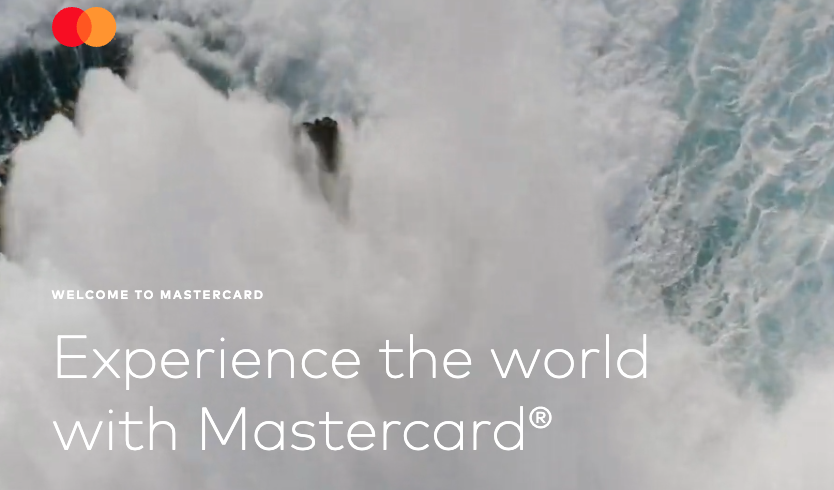
Zoe: So it’s not even just that people are inspired by change and like enjoy it, I suppose in one sense, it’s also they want to be a part of it. It’s actually a key human driver.
Thomas: Yeah, I think it’s whether it’s, whether it’s the post COVID world we live in, and having gone through change, or other drivers, there seems to be almost a different narrative now around change and people’s aspirations associated with it, which I think is tremendously positive.
As we kind of sit in the on the cusp of the fifth industrial revolution, kind of moving beyond cyber systems now into generative AI and other associated technologies. People are seeing real possibilities in terms of what the future could be for them with technology, augmenting what they do and that’s the one of the focus areas for us at MasterCard, as we continue to evolve our change agenda. It’s how can we eliminate toil, the low value work using technology using automation so that we can set the stage and free our people to spend time on those higher value tasks, which we encourage them to craft themselves in terms of what they focus on? I think it’s a really exciting time from a change perspective.
Zoe: Well, it sounds like an extremely successful study with loads of key insights, how are you going to apply this going forward?
Thomas: What we’ve what we’ve learned at MasterCard is to continue to evolve. As I said, this is a journey rather than a destination.
I think what we’ve learned from looking outside a window through this study is that change to be successful has to be holistic, it has to flow through the culture stack, rather than being focused potentially on the surface with frameworks and tools. So I’m fortunate enough in my role that I have purview across the entire culture stack.
So yes, I focus on frameworks and tools. But I also lead an organisation called the product guild, which is very focused on defining standards for our product managers, helping them with talent in the hiring support, with learning and development support, to enable them to develop and grow continuously providing them with the clarity of structure, roles, responsibilities, which provide them with that landscape, if you will to be successful, which we then enable through frameworks and tools, which we continue to automate.
We’re extremely focused on collaboration efficiency, we believe that’s going to be the difference for us. So we’re leveraging and harnessing tools to get us there.
Zoe: Fantastic. And just finally, what is next in MasterCard digital transformation journey?
Thomas: It’s a great question. It’s a question. It’s almost a little bit of a trap. Because what we’ve talked about is correct. You never quite know what’s going to be around the corner. So I think it’s combination of having a plan, which we do, using what I call the Eco model, empathy, compassion and outcome. So empathy is a deep understanding of our customer, which is our internal product managers in MasterCard, compassion is simply empathy with action.
So we listen carefully to our organisation. We augment that with the outside in perspective, and then we decide how we’re going to act for the better that involves prioritising which initiatives are going to drive the biggest impact for our product managers in the shortest possible time.
And then you work through that work stack. And then the OPC is outcome, we really want to hold ourselves to account. So everything that we focus on requires time and resource. We know that from the study that we conducted, it’s not free.
So it’s really important that we’re clear on what we’re trying to achieve, and that we hold ourselves accountable to that and when know that not everything that we focus on will be successful progress is not a straight line. So it’s okay to say that these two three initiatives didn’t work these four or five did. So let’s continue to focus on them. That’s really important for us as an organisation as we continue to develop and grow.
Zoe: Well, thank you so much, Tom for coming onto the digital lighthouse and sharing these key insights with us to help us shine a light for others.
Thomas: Thank you Zoe, it’s been a pleasure.
If you’ve enjoyed this episode of the digital lighthouse, our team are available to help you unlock the potential of strategic innovation. Learn how clarity, accountability, and embracing both successes and failures can propel your organisation forward.
